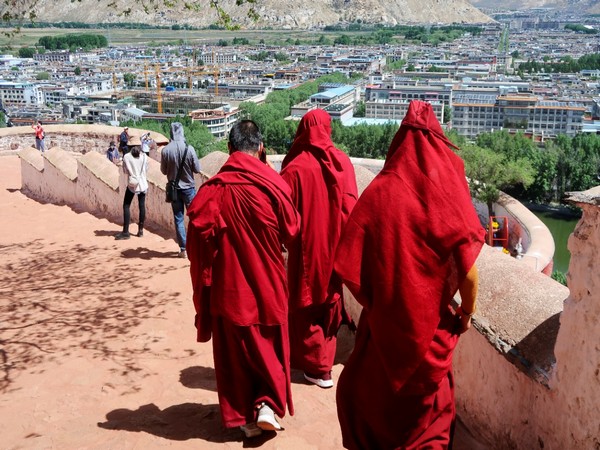Zhangzhung: China's "political archaeology" aimed to reinvent Tibetan history
A "Kingdom of Zhangzhung" perhaps existed in ancient times, but the CCP's false claim that it was "Chinese" is used in anti-Tibetan and anti-Indian propaganda.

- Country:
- Tibet
The Chinese Communist Party (CCP) relies heavily on rewriting history and its fixation on an ancient kingdom known as "Zhangzhung" is aimed at reinventing Tibetan history, writes Lopsang Gurung, in Bitter Winter. China has been carrying out research and excavation related to Zhangzhung in Western Tibet.
A "Kingdom of Zhangzhung" perhaps existed in ancient times, but the CCP's false claim that it was "Chinese" is used in anti-Tibetan and anti-Indian propaganda, said Gurung. China employs an army of trolls to constantly rewrite the popular online encyclopedia and further the CCP's interests. Tibetans who go to school in the so-called Tibet Autonomous Region are increasingly exposed to the notion of Zhangzhung.
There are well-funded CCP programs to promote "Zhangzhung Studies" through lectures and conferences both in China and internationally, reported Bitter Winter. As told in schools in Tibet and China, the story goes as such. In the Iron Age (but in fact with much earlier origins), a powerful kingdom arose called Zhangzhung that included Western Tibet, most of the present-day Indian union territory of Ladakh, and portions of what are today Nepal and Pakistan.
It had an advanced culture and its own religion, Bon. It also had a book defining its culture, the "Zhangzhung (or Shangshung) Tripitaka," which despite the Buddhist-sounding name predated the arrival of Buddhism in the area. Its earlier versions may date back to some 4,000 years ago. According to this story, Zhangzhung flourished for more than one thousand years before it was conquered by the Tibetans of Western Tibet and incorporated into their Buddhist kingdom between the 7th and the 8th century CE.
Zhangzhung, while representing a crossroad of civilization, was not an "Indian" but a "Chinese" culture, although its history has been hidden and falsified by Tibetans and Westerners until Chinese archaeologists rescued it, said Gurung. Moreover, the CCP is preparing a Chinese translation of the "Zhangzhung Tripitaka," in which the government-controlled China Buddhist Association is heavily involved. Important resources are devoted to finding archaeological evidence confirming this story, reported Bitter Winter.
The story of Zhangzhung, however, is taught for its propaganda value. It tells Tibetans that their most remote origins are "Chinese," it separates Tibet from Indian culture, and it supports China's border claims against India (in fact, arguing that all Ladakh was originally "Chinese"), said Gurung. China is trying to falsify Tibetan identity by representing it as "Chinese" with its "political archaeology" and manipulation of the past to boost its imperialistic territorial claims. (ANI)
(This story has not been edited by Devdiscourse staff and is auto-generated from a syndicated feed.)
ALSO READ
Indian Railways runs 244 special trains during Mauni Amavasya, carrying over 4.5 lakh passengers in just two weeks
Indian Railways runs 244 special trains during Mauni Amavasya, carrying over 4.5 lakh passengers in just two weeks
Most Indian hoteliers expect positive biz development amid global uncertainties
Indian Golfers Set to Shine at 2026 Hero Dubai Desert Classic
Outrage as Indian Tourists Captured in Viral Paris Video Ignoring Mime's Appeal










